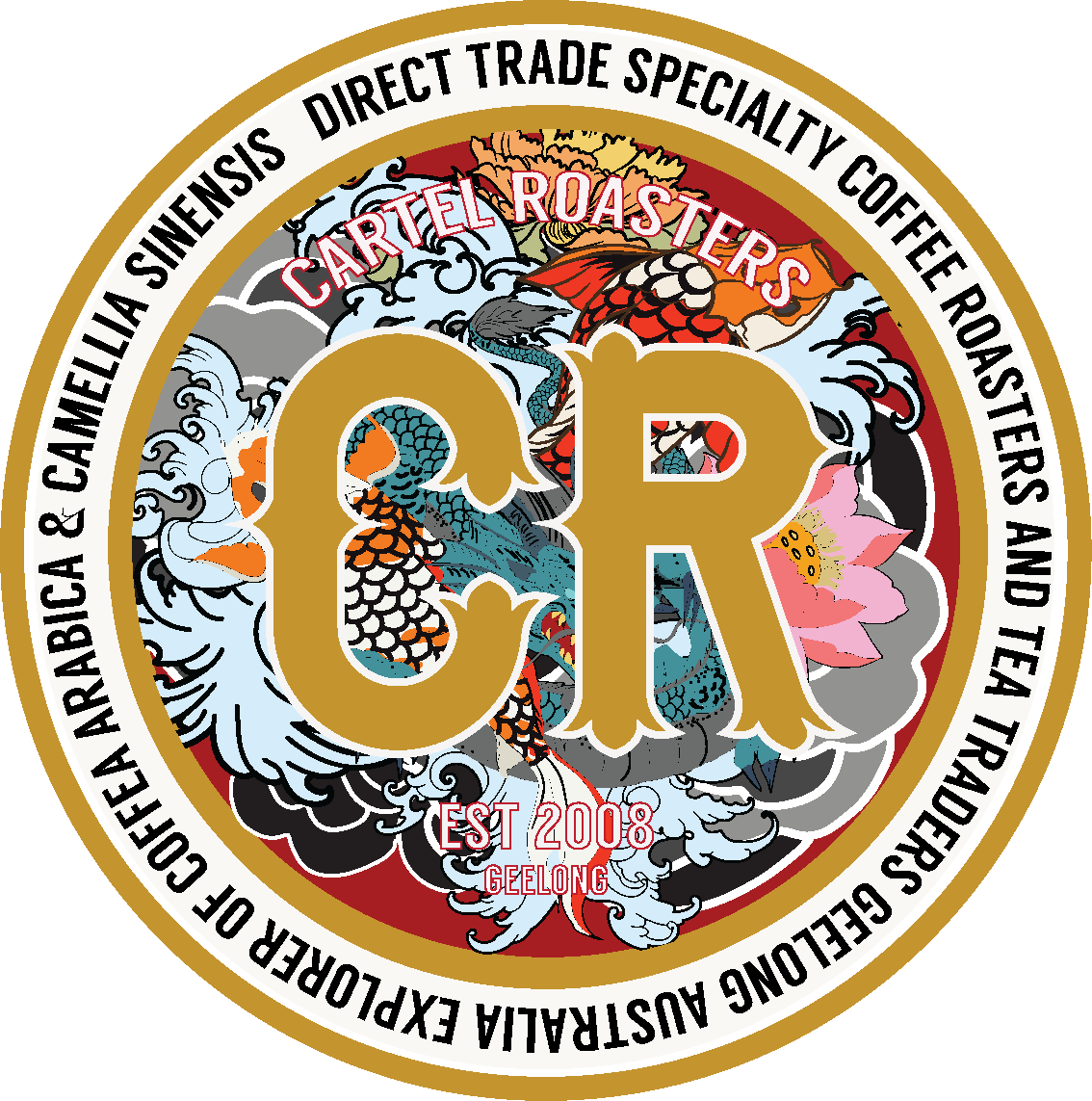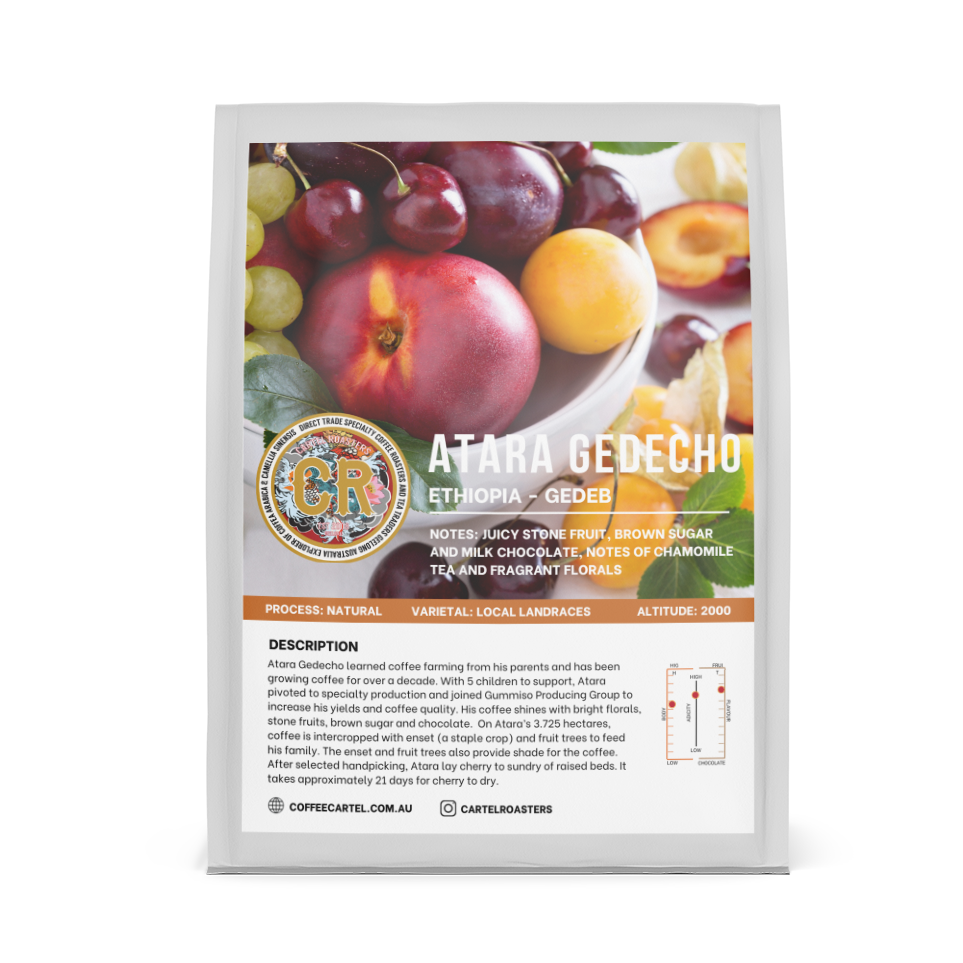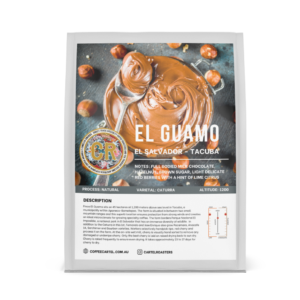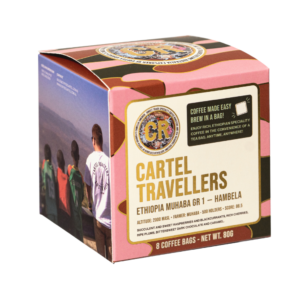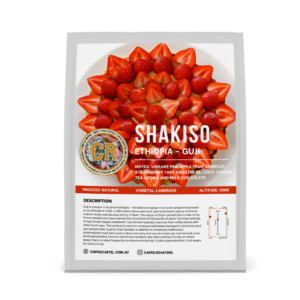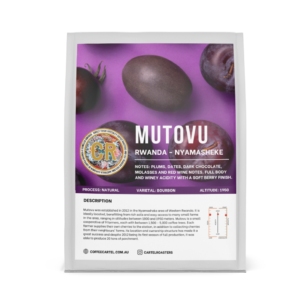About this coffee
- Altitude: 2050
- Farmer: ATARA GEDECHO
- Score: 88
- COUNTRY: ETHIOPIA -
NOTES: NOTES: JUICY BRIGHT FLORALS STONE FRUIT BROWN SUGAR RICH AND WHITE CHOCOLATE
Atara Gedecho learned coffee farming from his parents and has been growing coffee for over a decade. With 5 children to support, Atara pivoted to specialty production and joined Gummiso Producing Group to increase his yields and coffee quality. His coffee shines with bright florals, stone fruits, brown sugar and chocolate.
Coffee still grows wild in Ethiopia’s mountain forests. Ethiopian farmers cultivate coffee in four different systems, which include forest coffee, semi-forest coffee, garden coffee and plantation coffee. About 98% of the coffee in Ethiopia is produced by peasants on small farms and it is the country’s most important export. Ethiopia is Africa’s third largest coffee producer. There are about 700,000 coffee smallholders in Ethiopia, of which 54 percent are in semi forest areas. Coffee has been part of their indigenous cultural traditions for more than 10 generations.
Coffee is traded on the Ethiopian Commodities exchange (ECX) which unique to many other countries sets its own prices. Ethiopia Produced 7.1 Million Bags of Coffee in 2017-2018. Most Ethiopian Coffee goes to Germany and Saudi Arabia (about 20% Each) while Australia takes 2%. While most coffee does go through the ECX, reforms recently passed by the government have allowed larger farms and co-ops to market and sell their coffees directly to consumers, resulting in increased traceability and fairer pricing
This is a more rounded smooth tasting coffee compared to other Ethiopians I have tried. Less fruity but more chocolate. Good contrast to something like Lemongo. Ideally you’d have both available and have a nice choice!!
Leaves a very rich taste in the mouth when having a milk based coffee
Very well balanced. Very subtle and smooth. Bright notes and stone fruit most prominent but not overpowering. Subtle brown sugar and white chocolate base. I love a big, punchy, fruity ethiopian, but this is definitely a soft and well-balanced coffee. Real crowd pleaser too.
